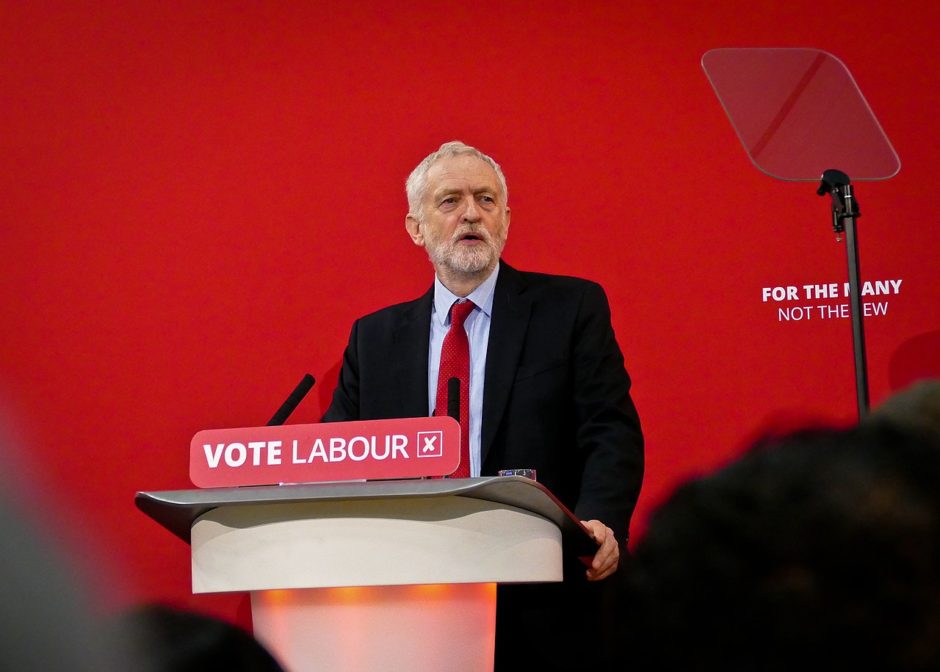Much to the relief of the vast majority of Jews in Britain, Jeremy Corbyn’s days as leader of the Labour Party are numbered following his party’s crushing defeat in Britain’s December 12 general election.
With Prime Minister Boris Johnson’s Conservatives having won a landslide victory, picking up 365 seats in Parliament compared to Labour’s 203, Corbyn had no alternative but to draw the appropriate conclusion and announce he would not contest the next election. In all probability, he will resign early in 2020 so that the rebuilding process in the party can begin.
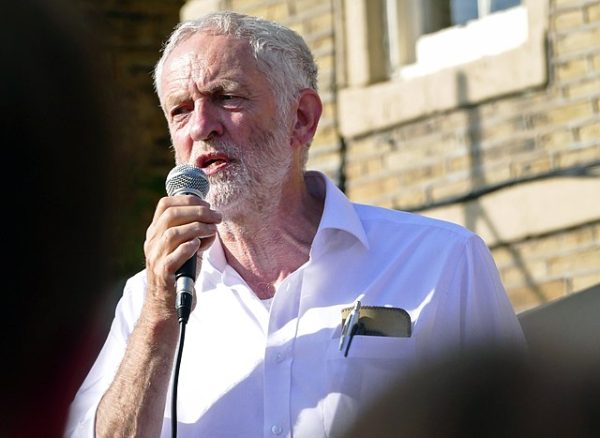
It’s reasonable to assume that antisemitism was a factor in the party’s poorest showing since 1935. It has been a nagging concern since Corbyn succeeded Ed Miliband, a Jew, as Labour leader in 2015. Until then, the party of Gordon Brown and Tony Blair had no such problem, outwardly at least, and commanded the support of a significant proportion of Jews.

With Corbyn at its helm, antisemitism emerged as a toxic issue, as the president of the Board of Deputies of British Jews, Marie Van der Zyl, commented in the wake of the election. In her estimation, “history will not look kindly on Jeremy Corbyn’s leadership of the Labour Party, where anti-Jewish racism has been allowed to run amok.”

According to a survey conducted by the Campaign Against Antisemitism, 84 percent of British Jews regarded Corbyn as a threat to the Jewish community. Such was the fear coursing through it that two in five Jews considered leaving the country.
In 2016, an inter-parliamentary committee accused the party of creating a “safe space for those with vile attitudes towards Jewish people.”
Some members of the party who engaged in antisemitic hate speech were expelled, but others were allowed to return. Several Jewish members of Parliament were subjected to online antisemitic abuse from Labour supporters. Still other MPs, notably Luciana Berger, bolted the party. She defected to the centrist Liberal Democrats, then lost to a Conservative.
Jewish voters who had been loyal to the party switched their allegiance to the Conservatives, a process that, in fact, had been going on for years. After the election, Ken Livingstone — a former mayor of London who was forced out of Labour over allegations of antisemitism — said that Jewish voters abandoned the party en masse. “The Jewish vote wasn’t very helpful,” he said. “Jeremy should have tackled that issue far earlier than he did.”

Corbyn was an ardent champion of the Palestinian cause, a self-styled “friend” of Hezbollah and Hamas, and a fierce critic of Israel. As a result, he left many Jews uneasy. Under his watch, anti-Zionist rhetoric grew and some Labour supporters expressed opinions that crossed the red line into outright antisemitism.
Britain’s Equality and Human Rights Commission is currently investigating the party over allegations of institutional antisemitism.
An anti-racist crusader, Corbyn had an ambivalent attitude toward antisemitism. On the one hand, he denounced it. On the other hand, he appears to have tolerated or turned a blind eye to it. Could it be he was insufficiently insensitive to it? Or was he complacent and careless?
In a piece in the Times of London last month, Ephraim Mirvis, the chief rabbi of Britain, endorsed claims that Corbyn had not been vigilant enough in combatting antisemitism.
“The way in which the leadership of the Labour Party has dealt with anti-Jewish racism is incompatible with the British values of which we are so proud — of dignity and respect for all people. It has left many decent Labour members and parliamentarians, both Jewish and non-Jewish, ashamed of what has transpired. The claims by leadership figures in the Labour Party that it is ‘doing everything’ it reasonably can to tackle the scourge of anti-Jewish racism and that it has ‘investigated every single case’ are a mendacious fiction. According to the Jewish Labour Movement, there are at least 130 outstanding cases currently before the party — some dating back years and thousands more have been reported but remain unresolved.”
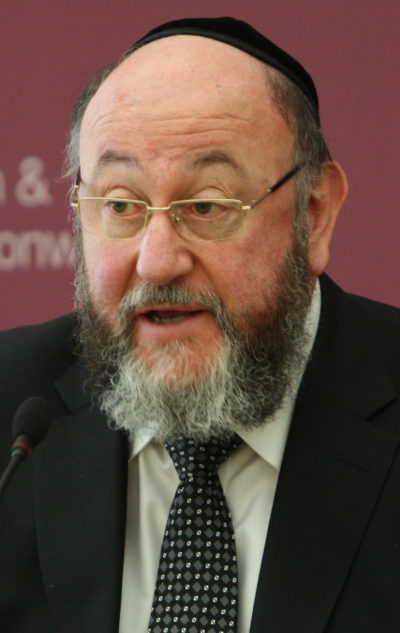
In a report based on the testimonies of 70 current and former party employees, the Jewish Labour Movement accused the party of harboring “endemic, institutional antisemitism” and pointed to “overwhelming evidence that antisemitic conduct is pervasive at all levels of the party.”
As for Corbyn himself, the report said he “has repeatedly associated with, sympathized with and engaged in antisemitism.” According to the report, Corbyn wrote the foreword for a book insinuating that Jews control the press and banks, he voiced support for a Holocaust denier, and he laid a wreath at the graves of Palestinian terrorists who murdered Israeli athletes at the summer Olympic Games in Munch in 1972.
Jonathan Sacks, the former chief rabbi of Britain, told the New Statesman in an interview last year that Corbyn is “an antisemite” who has “given support to racists, terrorists and dealers of hate.”
Sacks accused Corbyn of having made noxious comments about “Zionists” in a 2013 speech that he described as “the most offensive statement made by a senior British politician since Enoch Powell’s ‘Rivers of Blood’ speech” in 1968. “It was divisive (and) hateful, he said, and it undermined “the existence of an entire group of British citizens by depicting them as essentially alien.”
Speaking at the Palestinian Return Centre in London six years ago, Corbyn said that British “Zionists” have two problems. “One is they don’t want to study history and, secondly, having lived in this country for a very long time, probably all their lives, they don’t understand English irony either.”
“We can only judge Jeremy Corbyn by his words and his actions,” said Sacks in the New Statesman interview. “He has given support to racists, terrorists and dealers of hate who want to kill Jews and remove Israel from the map. When he implies that, however long they have lived here, Jews are not fully British, he is using the language of classic pre-war European antisemitism. When challenged with such facts, the evidence for which is before our eyes, first he denies, then he equivocates, then he obfuscates. This is low, dishonest and dangerous. He has legitimized the public expression of hate, and where he leads, others will follow.”
Sacks’ diatribe was sharply questioned by, among others, the then Speaker of the House of Commons, John Bercow, a Jew who disputed his assertion that Corbyn is negatively inclined toward Jews.
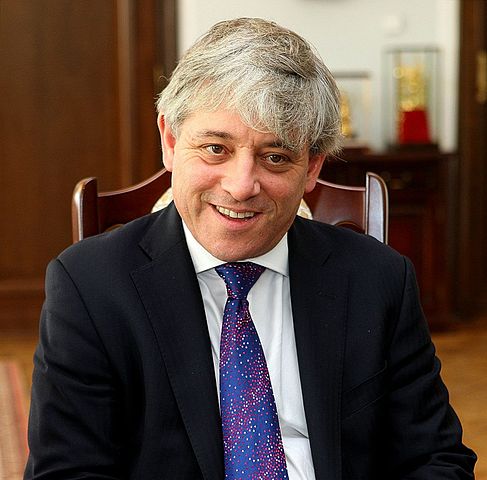
Robert Cohen, a Jewish writer, believes the scale of antisemitism in the party has been exaggerated. He cites statistics released by its general secretary, Jennie Formby, covering accusations of antisemitism levelled against party members between April 2018 and January 2019.
“The 673 accusations as a percentage of party members amounted to 0.1% of the total party membership,” he writes. “However, 220 of the allegations were rejected through the disciplinary process, which left 453 (or 0.08% of party membership) accused, found guilty and disciplined. Of these, only 12 were considered serious enough to warrant permanent expulsion.”
Leo Panitch, a left-wing Canadian Jewish historian who follows British politics, challenges the claim that Corbyn has been unfriendly to Jews and Jewish concerns.
In a recent piece in the Toronto Star, he writes, “The vilification of … Corbyn as an antisemite intensified in the run up to the election in Britain. What makes this especially troubling, not to say bizarre, is that since he first became a member of parliament in 1983 Corbyn has been the most consistent campaigner against all forms of racism. In fact, while still a local councillor in London in 1977 Corbyn had already organized a defence of the Jewish population of Wood Green from a neo-Nazi march. A recent compilation of the number of motions he advanced in Parliament to defend Jewish people, alongside other public stances he took to tackle antisemitism — to denounce Holocaust deniers, to commemorate Jewish resistance to fascism, to pressure the police to do more to protect synagogues against vandalism — came to well over 50.”
During this election campaign, Corbyn was dogged by questions concerning antisemitism.
Interviewed by the BBC, he repeatedly declined to apologize to British Jews for his handling of the issue. Nine days before the election, however, Corbyn came clean, saying he was “very sorry for what has happened” and assured the interviewer he was “dealing with it.”
Subsequently, Corbyn launched sharp attacks against antisemitism.
“Antisemitism in any form is vile and wrong” and “an evil within our society,” he said at a news conference. “There is no place whatsoever for antisemitism in any shape or form or in any place whatsoever in modern Britain, and under a Labour government it will not be tolerated in any form whatsoever. I have made very clear that antisemitism is completely wrong in our society, and our party did … indeed offer its sympathies and apologies to those who had suffered.”
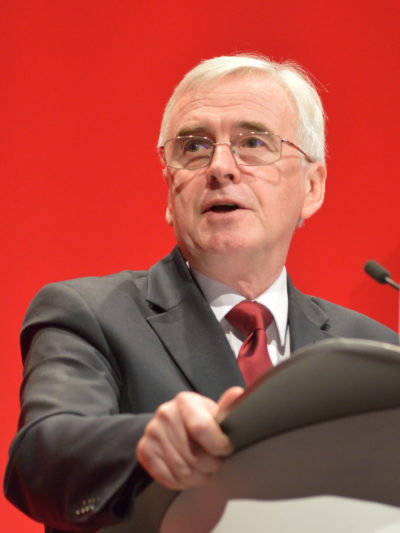
Four days prior to the election, Corbyn’s right-hand assistant, John McDonnell, issued an apology for “the suffering we’ve inflicted” on the Jewish community and admitted that the accusations of antisemitism rocking the party might affect its prospects in the election.
“We’re doing everything possible and we are going to learn more lessons and we want to be the shining example of anti-racism that the Labour Party should be,” he told the BBC.
Fine words, these. But by then, the damage had been done and the party was on the cusp of its worst defeat in decades.
